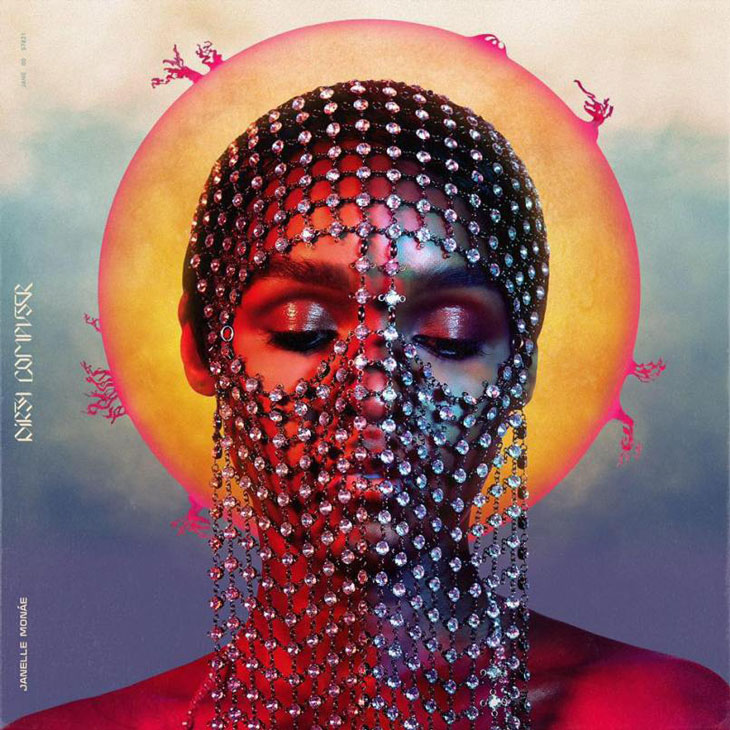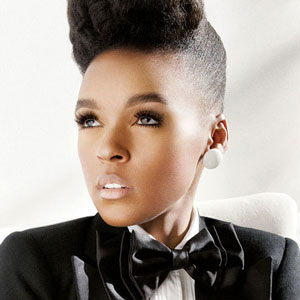“It's like I'm powerful with a little bit of tender, an emotional, sexual bender” – Make Me Feel
Janelle has come out of the android and become herself.
Dirty Computer, Monáe’s third studio album, and first non-metropolis effort, represents a queer crossroads, literally. Coming out after Monáe’s announcement of her pansexuality, Dirty Computer is imbued with the vital sexual energy that comes with a Kate Chopin-esque awakening. Stripping away the premise of Cyndi Mayweather and messianic travels in the labyrinth of sounds, concepts, and '20s film references, Monáe has never sounded more focused.
Among the greatest joys and frustrations of Monáe’s output is her chaotic sense of Genre Identity Disorder. One song will be a straight drums n’ bass banger, and then the next will be a wild foray into psychedelic Of Montreal tropes, then a Stevie Wonder R&B song, then a David Bowie ode, and so on, all at a frenetic, slap-dash pace. Always arranged expertly, and catchy as hell, but, like Mayweather herself, they feel like musical masks. The genre hopping is ever present throughout this cut’s 14 tracks, but with an essential cohesion and sense of self.
The tracks meld from one to the next, moving with an effortless graceful glissando from the opiate straight pop of “Crazy, Classic Life” to the Graceland/Peter Gabriel-esque “Take a Byte," to the overt Prince track “Make Me Feel." None of the songs feel tangential. They thrust forward with verve and vitality. The sound-space is vital, open and endlessly inviting.
As important as the sense of sexual awakening is the ghost in the machine that is Prince. Prince’s ethereal presence can be felt all over the record, and not just in the squishy minimalist synth song he helped write. His hand can be felt guiding Monáe’s decision to tighten and focus her sound, keeping the palette to bright guitars, sexy thrumming bass, drum machine drillbits, and straightforward kits. Prince released his mojo and allowed Monáe to denude her sound and self to everyone’s benefit. The whole ends up a concentrated honest record that strips Monáe naked, celebrating her otherness with a neon sign that to this point has been simulacrum and artifice.
None of the songs feel tangential. They thrust forward with verve and vitality. The sound-space is vital, open and endlessly inviting.
This change in focus mostly works, but not unilaterally. Some tracks have a tinny mechanical pop-by-numbers quality, especially the generic earworm “Crazy, Classic, Life”, and “I Got the Juice.” The album’s flow, while more focused, does not have a perfect balance, with the back-half meandering without the sense of forward propulsion that make the first half pure joy.
Suffering most of all, however are the lyrics. Apropos of the current cultural environment that invites little nuance, or subtlety, this celebration is as loud and brassy as can be. As a result, the celebration lacks depth, feeling like a blast of color and sound and noise and love, but nothing more.
But, opening the circuitboard and seeing the pink machinery of a beating heart, among other things, is quite a sight.
Until I feel so fuckin’ real.













